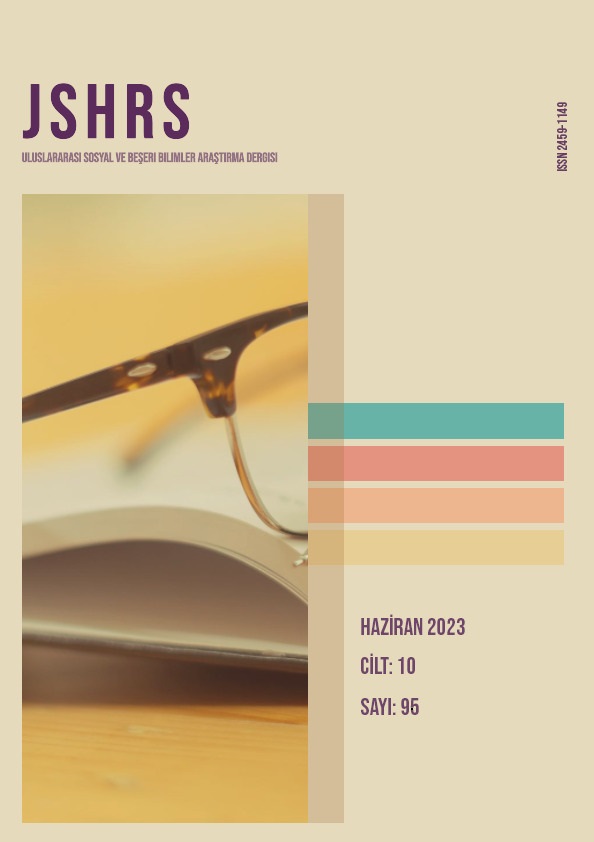From Mass Communication to Digital Society: Cultural Paradigms of Digitalism
DOI:
https://doi.org/10.5281/zenodo.8111915Keywords:
Digitalism, Mass Culture, Society, Technology, TransformationAbstract
The formation of the digital society has been greatly influenced by the internet infrastructure that emerged after the 1980s. However, the process of becoming a digital society began with the discovery of television and other mass media. The emergence of mobile phones and mobile internet further accelerated this process, compressing the progress achieved in the industrial revolution over 300 years into a mere 20 years. Contemporary technology has permeated all aspects of society, leading to the individual experience of the psychology of mass culture. With the industrial revolution, the goals of profit-making and market creation gained significance at both individual and societal levels. Global multinational corporations resort to various methods to offer their products and services to society or individuals, often disregarding ethical and traditional boundaries, perceiving people as mere commodities, and exerting technological pressure on them. This study aims to provide an evaluation in this field, based on the analysis of existing theses, books, and articles. The scope of the study will be detailed under five main headings: Introduction, Culture, Mass Culture, Digitalism, and Conclusion. In this section, a general assessment will be made, and the relevant literature on this subject will be reviewed
References
Adorno, T. W. (2003). Kültür Endüstrisinin Yeniden Düşünürken. Cogito Dergisi, 80-101.
Adorno, T. W. (2007). Kültür Endüstrisi Kültür Yönetimi. İletişim Yayınları
Akkol, M. L. (2019). Kitle Endüstrisi ve Kitle Kültürü Kavramlarının Frankfurt Okulu Düşüncesi Üzerinden Analizi, Uluslararası İnsan Çalışma Dergisi, 2(3),49-64.
Aksoy, S. (2019) Kültür Endüstrisi Güdümünde Boş Zaman Pratiklerinde Tektipleşme: “Keyif” Etiketi İle Yapılmış Instagram Paylaşımları Üzerine Bir İnceleme. Akdeniz Üniversitesi İletişim Fakültesi Dergisi (AKİL) (31),601-622
Ankara Üniversitesi. (t.y.). https://acikders.ankara.edu.tr/. Erişim: 07.04.2023
Berhens, R. (2011). Adorno Sözlüğü. Versus Yayınevi.
Dündar, F. N. (2022). Çağdaş Sanatta Kitle Kültürü ve Tüketim Eleştirisi. İdil Dergisi, 1259-1264.
Hassan, R. (2018). Dijital Yabancılaşma. R. Hassan içinde, Dijitalin Durumu (s. 130). Weatminster Üniversitesi.
Hatipler, M. (2016). Ekonomik Boyutuyla Görsel Kültür ve Kültür Endüstrisi. Değişim Yayınları.
Kılınç, M. (2017). Kitle Kültürünün Dijital Kültüre Dönüşümü ve Toplumsal Etkilerinin İncelenmesi. Marmara Üniversitesi -İstanbul Aydın Üniversitesi, Sosyal Bilimler Enstitüsü, Yüksek Lisans Tezi, İstanbul.
Kültür Bakanlığı. (1992). IV. Milletler Arası Türk Halk Kültürü Kongresai Bildirileri. Feryal Matbaası.
Lee, I., Martin, F., Denner, J., Coulter, B., Allan, W., Erickson, J. & Werner, L. (2011). Computational thinking for youth in practice. ACM Inroads, 2(1), 32–37.
Sadakaoğlu, M. ve Genç, F. (2022). Dijital Tüketim Kültürü: Dijital Kitle İletişim Araçları İle Tüketim Kültürü Arasındaki İlişki Üzerine Bir inceleme. TRTaKaDeMi, 286-303.
Tezcan, M. (2015). Sosyolojiye Giriş. Anı Yayıncılık.
UNESCO (1982). Mexico City Declaration on Cultural Policies World Conference on Cultural Policies. Mexico City.
Yeşilmen, H. (2019). Doğa ve Kültür İlişkisi Açısından Dijitalizm ve Mouse Krizi. Sosyal Bilimler Araştırma Dergisi (SBARD), 97-124.
Williams, R. (1983). Keywords, New York: Oxford University Press.
Vigna, P. & Casey M. J. (2017). Kripto Para Çağı, Buzdağı Yayınlar, Ankara
Downloads
Published
How to Cite
Issue
Section
License
Copyright (c) 2023 INTERNATIONAL JOURNAL OF SOCIAL HUMANITIES SCIENCES RESEARCH

This work is licensed under a Creative Commons Attribution 4.0 International License.


